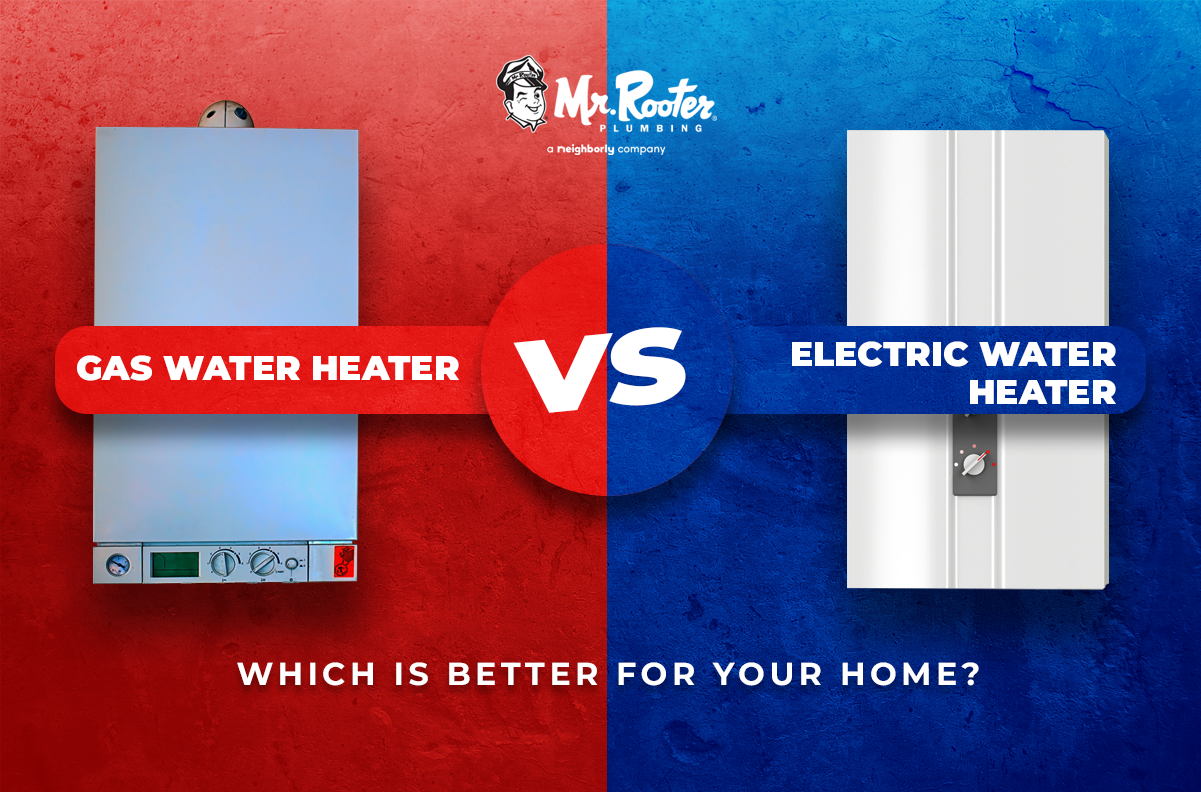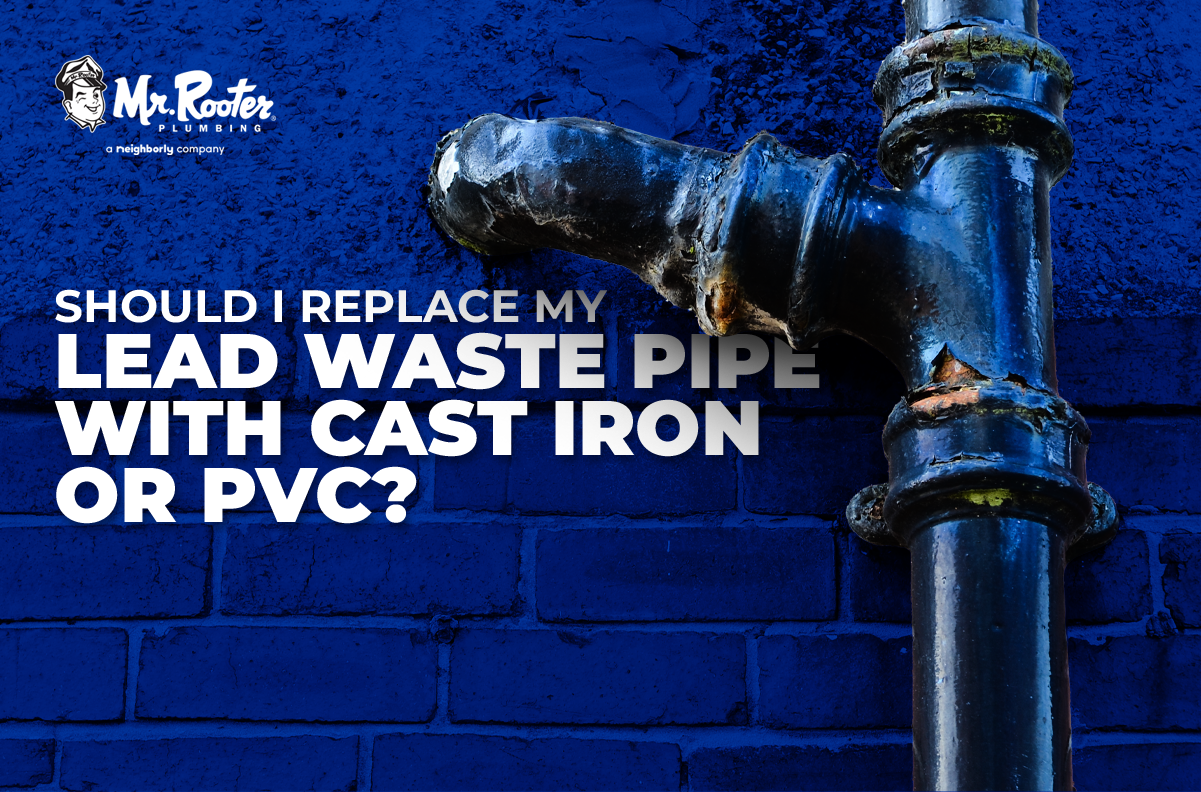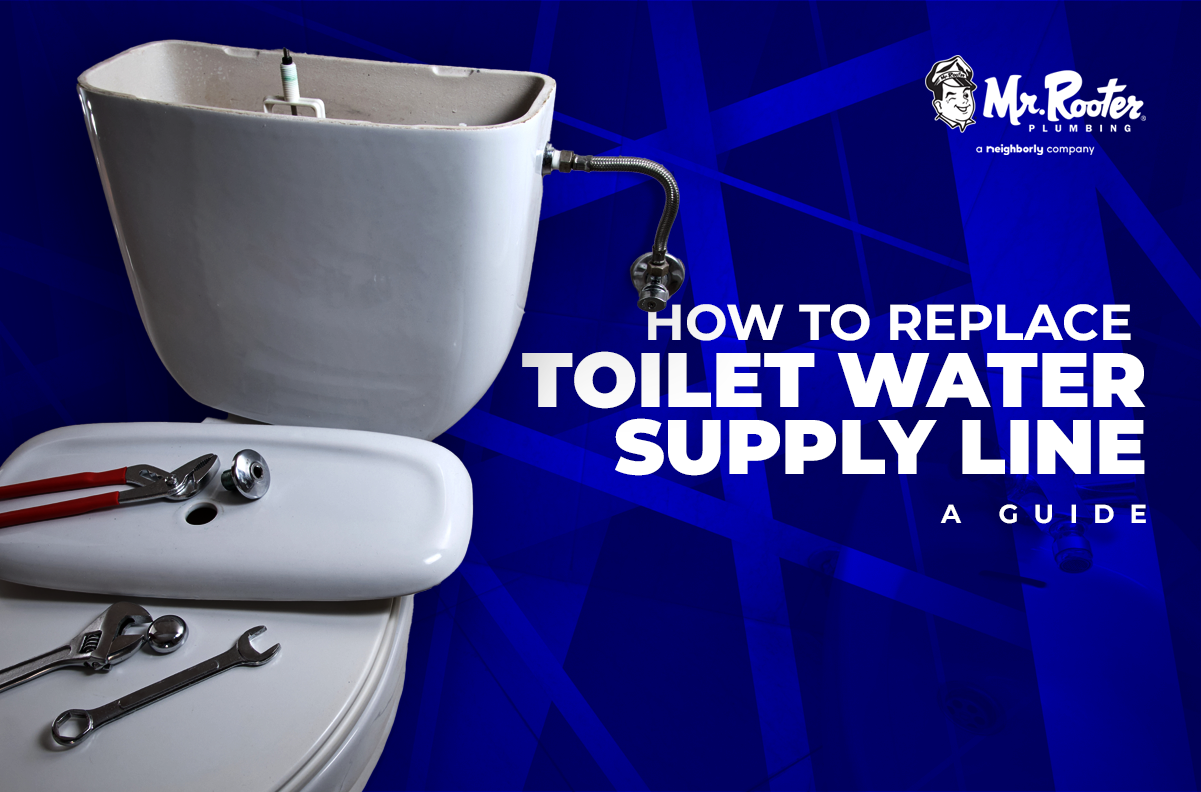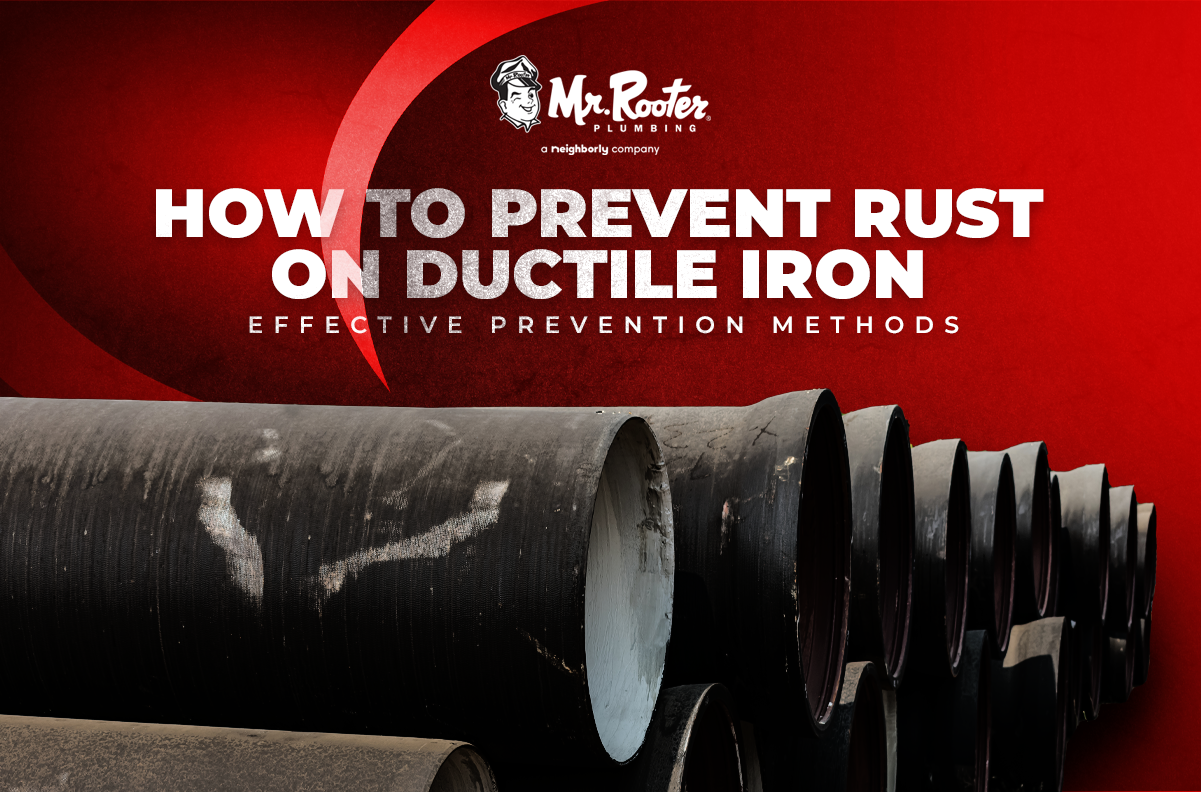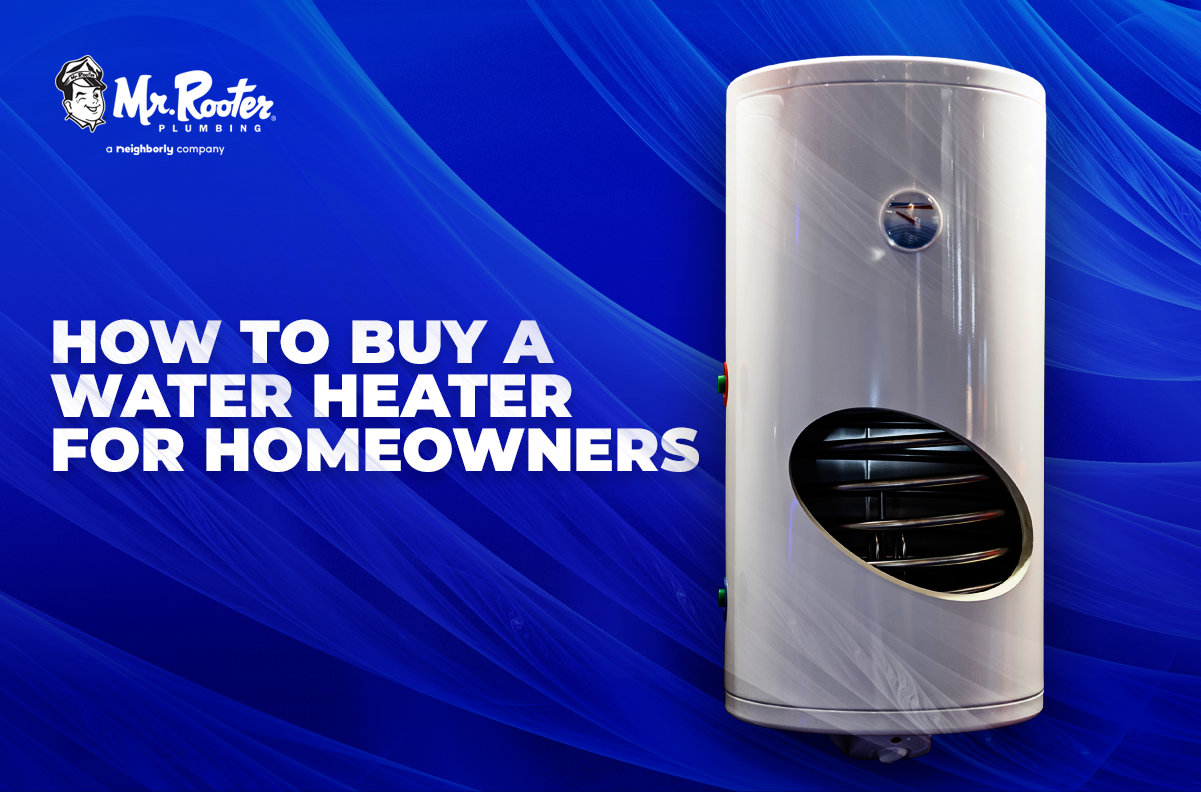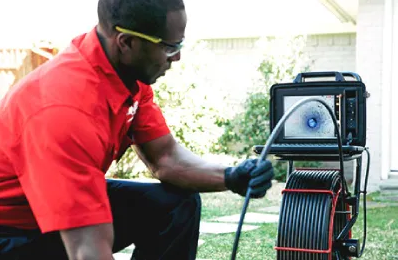If you’re in the market for a new water heater, you’ve likely come across the age-old debate: gas vs electric water heaters. It’s a decision that can significantly impact your home’s comfort and utility bills. In this comprehensive guide, we’ll delve into the pros and cons of both options, helping you make an informed choice tailored to your needs as a homeowner.
Gas Water Heaters vs Electric Water Heaters: A Comparison
Choosing between gas and electric water heaters is a crucial decision for your home. This comparison will provide insights into which option suits your needs best.
Efficiency and Cost
Gas water heaters are known for their quick heating and lower operating costs. However, they come with a higher upfront installation price and may need additional ventilation. Electric water heaters are more affordable initially but have higher ongoing operational expenses.
Installation and Maintenance
Gas water heaters require professional installation due to gas lines and ventilation. Regular maintenance, including gas line checks and burner cleaning, is vital for safety and efficiency. Electric water heaters are easier to install and maintain, with routine tasks involving heating element and electrical connection checks.
Environmental Impact
Gas water heaters emit greenhouse gases during operation, while electric ones depend on your electricity source. If your power comes from fossil fuels, electric heaters may not be as environmentally friendly.
Pros and Cons of Gas Water Heaters
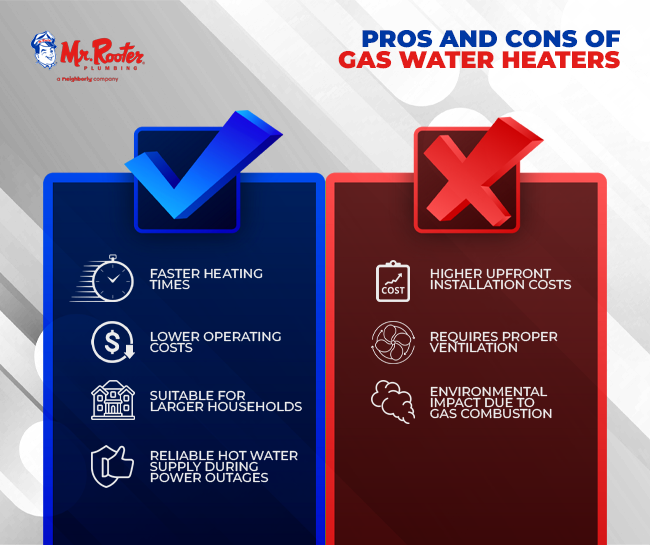
Let’s take a closer look at the advantages and disadvantages of gas water heaters:
Pros:
- Faster heating times
- Lower operating costs
- Suitable for larger households
- Reliable hot water supply during power outages
Cons:
- Higher upfront installation costs
- Requires proper ventilation
- Environmental impact due to gas combustion
💡 Gas water heaters use a burner to heat water, providing hot water through boiling and steaming. They use natural gas or propane, with propane being pricier but more efficient. They come in tank and tankless options, storing water or heating it on demand.
Pros and Cons of Electric Water Heaters
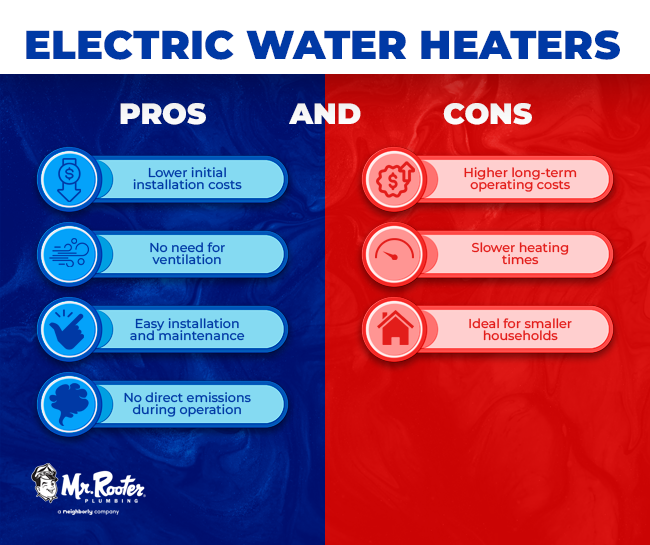
Now, let’s explore the benefits and drawbacks of electric water heaters:
Pros:
- Lower initial installation costs
- No need for ventilation
- Easy installation and maintenance
- No direct emissions during operation
Cons:
- Higher long-term operating costs
- Slower heating times
- Ideal for smaller households with lower hot water demands
💡 Electric water heaters utilize electricity as their fuel source for heating water. These heaters typically feature upper and lower heating elements submerged in water to directly heat it.
Is It Worth Switching from Gas to Electric?
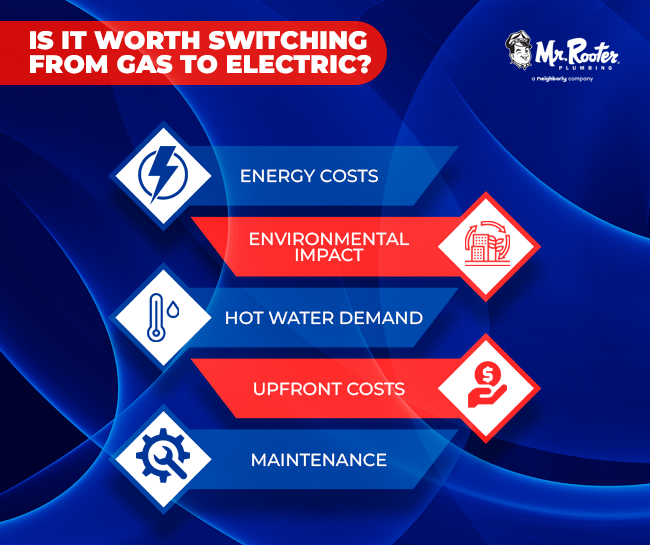
If you’re considering switching from a gas to an electric water heater, several factors should influence your decision:
- Energy Costs: Compare the current cost of gas and electricity in your area. In some regions, electricity may be significantly cheaper, making the switch financially beneficial.
- Environmental Impact: If reducing your carbon footprint is a priority, consider the environmental benefits of electric water heaters, especially if your electricity comes from renewable sources.
- Hot Water Demand: Assess your household’s hot water needs. Larger families or homes with high demand for hot water may benefit from the efficiency of a gas water heater.
- Upfront Costs: Consider your budget for installation. Electric water heaters are generally more affordable to install.
- Maintenance: Evaluate your willingness to perform maintenance tasks. Electric water heaters are typically easier to maintain.
The choice between gas and electric water heaters depends on your unique circumstances. Gas models are efficient and cost-effective, while electric ones are budget-friendly initially and potentially more eco-friendly. Make the right choice for your home’s comfort and budget.

